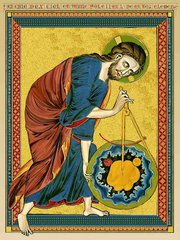 La Civiltà Cattolica, THE prestigious journal of opinion in Italy, and perhaps in very many ecclesial circles, has new leadership in Jesuit Father Antonio Spadaro. La Civiltà Cattolica has been at the service of the Church 162 years.
La Civiltà Cattolica, THE prestigious journal of opinion in Italy, and perhaps in very many ecclesial circles, has new leadership in Jesuit Father Antonio Spadaro. La Civiltà Cattolica has been at the service of the Church 162 years.
Tag: La Civiltà Cattolica
Who is St George?
How can anyone not like Saint George’s story? Whatever happened to the real cult of Saint George? Does the saint have contemporary relevance for us today? What witness does he offer the “post-modern” people we purport to be? Do we still struggle against Satan, the evil one, the great tempter? How do deal with the noontime devil that seeks to divide us from a filial relationship with God? Jesuit Father George Nedungatt, professor emeritus of the Pontifical Oriental Institute (Rome) wrote an essay “Saint George without the Dragon” explaining contemporary –at least since Vatican II– Church’s remembrance of and prayerful reliance on, the Lord’s dragon slayer. As the summary of the article says, “The post-conciliar reform has entered the liturgical celebration of St. George [on April 23] amidst the facultative memoirs, attributing the historical date of his martyrdom in Lydda circa 303. It follows the protest, both by those who have chosen St. George as patron and, and for opposing reasons, by those who deny the killing of the dragon by the saint. To shed light on the issue, the article distinguishes between the current liturgical (the cult certificated since ancient time on the saint’s tomb), and the literary tendency, (legends based on his figure as a symbol of the struggle against the forces of evil).” You can read about Saint George in La Civiltà Cattolica (3859, 2011, II, pp. 20-29).
Where Shahbaz Bhatti leading us now?
A few times in the last month I’ve mentioned the the tragic death of a brother in the Lord, Shahbaz Bhatti, a Catholic in Pakistan, a voice against oppression. His death should signal for us that religious freedom is not operative around the world as well as out-and-out persecution of Christians is a too frequent occurrence. Just read the end of the year stats on the deaths of people just because they are Christian published by the Vatican office of Evangelization of Peoples. We can’t under-estimate the our brothers and sisters in other parts of the world face just because they utter Jesus’ name as Lord and Savior: they face death and oppression daily.
In a recently published essay, “The Assassination of Shahbaz Bhatti, Jesuit Father Luciano Larivera, explores the details of a Christian’s murder by Islamic extremists. He writes in his summary, “On March 2, a commando of an Islamic terrorist group assassinated Shahbaz Bhatti, 42, the minister of Religious Minorities in Pakistan. He was a Catholic, and is already considered a martyr for the faith and interreligious dialogue. Let us quote the spiritual testament. As with the governor of the province of the Punjab, Salmaan Taseer, who was killed Jan. 4, Bhatti had fought for the abolition, or at least for the reform, of the law against blasphemy and the liberation of Asia Bibi, who was sentenced to be hung for insulting Muhammad. Pakistan is torn apart by numerous tensions and an internal power struggle. Religious violence and intimidation have weakened the Government’s action. The country needs the restoration of an effective criminal justice system, which also prevents and sanctions crimes against religious minorities. La Civiltà Cattolica (3859, 2011, II, pp. 81-90) carries the essay.
The UK’s Guardian carried this obit for Shahbaz Bhatti.
Cybertheology
Towards a ‘Cybertheology’ — Antonio Spadaro asks the right question
Jesuit Father Antonio Spadaro, the literature editor
the Italian bi-weekly journal La Civiltà Cattolica published an article
“Towards a ‘Cybertheology’?” which will appear in the January 1st issue.
Father Spadaro’s summary:

Internet has become part of everyday life for many people, and for this reason
it increasingly contributes to the construction of a religious identity of the
people of our time, affecting their ability to understand reality, and
therefore also to understand faith and their way of living it. The Net and the
culture of cyberspace pose new challenges to our ability to formulate and
listen to a symbolic language that speaks of possibility and of signs of
transcendence in our lives. Perhaps the time has arrived to consider the
possibility of a cybertheology also understood as the intelligence of faith in
the era of the Net. It would be the fruit of faith that releases from itself a
cognitive boost at a time in which the logic of the Net influences the way we
think, learn, communicate and live.
Subjected to the spirit, the body will be sexual in eternal life, according to Aquinas
The liturgical year of the Church brings to the front burner of the spiritual life a number of things at this time of year: questions about salvation, death, hell, heaven, purgatory, Christ’s kingship, conversion, and the like. In fact, a central piece of our spiritual work in the School of Community (of Communion and Liberation) right now is understanding what it means to convert, to live in spirit of conversion, to live as though we REALLY believe in Christ, turning away from sin, and turning toward the Lord. Father Julian Carron is hitting members of Communion and Liberation pretty hard with the call to conversion. However, if truth be told, Father Carron is taking his cue from Pope Benedict. Nevertheless, on the human level, for finite beings we have to be concerned with such things because we don’t live forever, just in case you didn’t know this fact; we are rightly concerned now because once we’re dead, there is no way of making a conversion (sorry, there is no reincarnation).
A professor at the Institute of Philosophy and Theology of Shkodër (Albania), Jesuit Father Mario Imperatori, wrote an essay that caught my eye, “Eschatology and Resurrection of the Body in St. Thomas Aquinas,” published in the current issue of La Civiltà Cattolica (issue # 3849; pp. 257-268). As you know, this periodical is reviewed by the Secretary of State of the Holy See prior to publication.
In the article, Father Imperatori argues, “St. Thomas’s doctrine regarding glorified bodies
is based on the resurrection of the flesh, interpreted in an
anti-spiritualistic manner. For him, in fact, the intellectual soul is the
unique and subsisting shape of the human being; after the resurrection carried
out by God, the body too will share with the soul the same incorruptibility and
bliss; it will be a spiritual body not because it becomes spirit, but because
everything will be subjected to the spirit. Aquinas adds that the human body,
because of its wholeness, will continue to be sexual, despite the absence of
procreation. The Eschatology of St. Thomas has proven controversial, but it has
the merit of asserting the bodily-spiritual reality of man as the ultimate
purpose of creation.”
So, the human body will relate as a sexual being in the eternal life. Interesting. Thanks for letting me know. What joy that will be, don’t you think? I wonder what relating sexually means for a glorified body.
Is the doctrine of Original Sin relevant today?
Good question. I am not always confident that the baptized ask this question enough in the lives as Christians. From what I can tell, there seems to be an easy dismissal of anything that requires assent and personal responsibility for our actions, words and thinking. Why? Do we admit there is a sin, that it’s part of the human condition, that it’s handed down from generation to generation? Are we no longer need of redemption? Is humanity’s need for salvation a thing of the past, quaint? Does the fear of God no longer have currency for a relationship with the all-powerful, all-knowing, all-loving God, creator of heaven and earth?
doctrine, interpreted according to the Catholic faith, offers an answer to at
least four questions that are important to both believers and non-believers:
anthropological, philosophical, liturgical, and dogmatic. The article goes on
to examine the role of the Sacred Scripture, the position of Saint Augustine,
of Saint Thomas Aquinas, and the outcomes of the Council of Trent. In
contemporary theology, there exist various tendencies on this theme: original
sin as sin of the world, original sin as psychological and/or social phenomena,
and original sin and the supremacy of the grace of Christ.
Cattolica 2010 IV, pp. 119-132; issue 3848, © copyright.
The Simpsons and Religion
 In the last few days the Catholic and secular media have picked up a story in L’Osservatore Romano, the Vatican newspaper, on the famous show, “The Simpsons.” To me, the show is OK social commentary and therefore not for young audiences. The show is now in its 22nd season and broadcast to 90 countries. The claim is that Homer J. Simpson is Catholic. Well…. The Jesuit periodical, La Civiltà Cattolica published last week Jesuit Francesco Occhetta’s essay, “‘The Simpsons’ and Religion.” For what’s it’s worth, here is the précis of the article says:
In the last few days the Catholic and secular media have picked up a story in L’Osservatore Romano, the Vatican newspaper, on the famous show, “The Simpsons.” To me, the show is OK social commentary and therefore not for young audiences. The show is now in its 22nd season and broadcast to 90 countries. The claim is that Homer J. Simpson is Catholic. Well…. The Jesuit periodical, La Civiltà Cattolica published last week Jesuit Francesco Occhetta’s essay, “‘The Simpsons’ and Religion.” For what’s it’s worth, here is the précis of the article says:
are still breaking records: the program is watched by 100 million viewers, in
90 countries worldwide. The story of the life of a regular family, of a
cross-section of American society and individual problems are the reasons why
viewers identify themselves with The Simpsons. This article also examines the
relationship between the protagonists of this American sitcom and religion. “The Simpsons” are among the few television programs for young people in which,
although sometimes treated with a certain superficiality, the Christian faith,
religious practice and the question of God are recurring themes.” (Copyright © La Civiltà
Cattolica 2010 IV 140-149 issue 3848)


